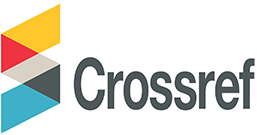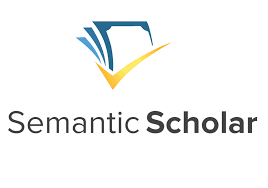Exploring the Relationship Between Teacher Reflective Practices and Student Engagement in ESL Classrooms
DOI :
https://doi.org/10.69760/aghel.0250040001Mots-clés :
Teacher Reflective Practice, Student Engagement, ESL Secondary EducationRésumé
This study explores the impact of teacher reflective practice on student engagement in secondary-level ESL classrooms in Nakhchivan. Rooted in Schön’s reflective teaching model, the research investigates whether reflection frequency and depth correlate with cognitive, emotional, and behavioral aspects of engagement. Using a mixed-methods design, 20 ESL teachers were split into reflective (journaling and group reflection) and control groups. Engagement levels of 240 students (ages 13–16) were assessed via surveys and observations. Results show significant positive correlations between teacher reflection and student engagement (r = 0.68 for frequency; r = 0.61 for depth, p < .01). Reflective teachers’ students reported higher motivation and participation (mean score 4.28 vs. 3.13). Qualitative findings linked reflection to more empathetic teaching, adaptive methods, and a greater student voice. This highlights the value of structured reflection in enhancing ESL learning experiences.
Références
Alderman, M. K. (2004). Motivation for achievement: Possibilities for teaching and learning (2nd ed.). Lawrence Erlbaum Associates.
Alisoy, H. (2024). Engaging Mixed-Age Learners with Personal Interests in ESL Beginners. EuroGlobal Journal of Linguistics and Language Education, 1(2), 11-16.
Alisoy, H. (2024). The magic of languages: Introducing a second language in early childhood education. Retrieved from ResearchGate: https://doi. org/10.13140/RG, 2(11042.81603).
Alisoy, H. (2025). ESL teaching methods and approaches: essential strategies for encouraging effective language acquisition. Global Spectrum of Research and Humanities , 1(1), 3-11. https://doi.org/10.69760/gsrh.0101202401
Alisoy, H. (2025). Multilingualism: Cognitive, Social, and Educational Dimensions in a Globalized World. Journal of Azerbaijan Language and Education Studies, 2(2), 28-38. https://doi.org/10.69760/jales.2025001008
Alisoy, H., Mammadova, I., Asadova, B., Ismayilli, F., & Aliyeva, T. (2024). The future of language education: Integrating smartphones into the curriculum. Edelweiss Applied Science and Technology, 8(6), 4539-4556.
Aliyeva, E. (2025). The Role of Teaching Proverbs and Sayings in Enhancing Students' Speaking Skills. Acta Globalis Humanitatis et Linguarum, 2(1), 54-61.
Brookfield, S. D. (2017). Becoming a critically reflective teacher (2nd ed.). Jossey-Bass. (Original work published 1995). DOI: 10.37074/jalt.2019.2.2.22
Dewey, J. (1933). How We Think: A Restatement of the Relation of Reflective Thinking to the Educative Process (Revised ed.). D.C. Heath and Company.
Farrell, T. S. C. (2013). Reflective practice in ESL teacher development groups: From practices to principles. TESL Canada Journal, 32(1), 62–73. DOI: 10.18806/tesl.v32i1.1200
Farrell, T. S. C., & Kennedy, B. (2019). Reflective practice framework for TESOL teachers: One teacher’s reflective journey. Reflective Practice, 20(1), 1–12. DOI: 10.1080/14623943.2018.1539657
Fredricks, J. A., Blumenfeld, P. C., & Paris, A. H. (2004). School engagement: Potential of the concept, state of the evidence. Review of Educational Research, 74(1), 59–109. DOI: 10.3102/00346543074001059
Fredricks, J. A., Reschly, A. L., & Christenson, S. L. (Eds.). (2019). Handbook of student engagement interventions: Working with disengaged youth. Academic Press. DOI: 10.1016/B978-0-12-813413-9.00001-9
Gudeta, D. (2022). Professional development through reflective practice: The case of Addis Ababa secondary school EFL in-service teachers. Cogent Education, 9(1), 2030076. DOI: 10.1080/2331186X.2022.2030076 (Study from Ethiopia showing that structured reflective practice activities for EFL teachers improved their teaching skills and classroom practices.)
Hasan, A. (2022). The importance of listening in language acquisition.
Kharlay, O., Wei, W., & Philips, J. (2022). How do I teach? Exploring knowledge of reflective practice among in-service EFL teachers in Ukraine. Teachers and Teaching, 28(2), 188–205. DOI: 10.1080/13540602.2022.2062709 (Investigates EFL teachers’ understanding of reflective practice in a post-Soviet context, discussing challenges and the impact on teaching quality.)
Kolb, D. A. (1984). Experiential learning: Experience as the source of learning and development. Prentice-Hall.
Mammadova, I. (2024). The Role of Proverbs in Language Learning: A Cognitive and Cultural Perspective. EuroGlobal Journal of Linguistics and Language Education, 1(1), 40-45.
Mercer, S., & Dörnyei, Z. (2020). Engaging Language Learners in Contemporary Classrooms. Cambridge University Press.
Mikayilova, U., & Kazimzade, E. (2016). Teachers as reflective learners: Teacher perception of professional development in the context of Azerbaijan’s curriculum reform. Voprosy Obrazovaniya / Educational Studies Moscow, (2), 125–145. DOI: 10.17323/1814-9545-2016-2-125-145
Ryan, R. M., & Deci, E. L. (2017). Self-determination theory: Basic psychological needs in motivation, development, and wellness. Guilford Press.
Sadeghi, K., & Richards, J. C. (2021). Professional development among English language teachers: Challenges and recommendations for practice. Heliyon, 7(9), e08053. DOI: 10.1016/j.heliyon.2021.e08053
Sadiqzade, Z. (2025). Idiomatic Expressions and Their Impact on Lexical Competence. Journal of Azerbaijan Language and Education Studies, 2(1), 26-33. https://doi.org/10.69760/jales.2025001002
Sadiqzade, Z., & Alisoy, H. (2024). Level-Up Learning: Using Games to Teach English Across Student Levels. EuroGlobal Journal of Linguistics and Language Education, 1(3), 181-194. https://doi.org/10.69760/egjlle.20240104
Salih, A. A., & Omar, L. I. (2022). Reflective teaching in EFL online classrooms: Teachers’ perspective. Journal of Language Teaching and Research, 13(2), 261–270. DOI: 10.17507/jltr.1302.05
Schön, D. A. (1983). The Reflective Practitioner: How Professionals Think in Action. Basic Books.
Skinner, E. A., Kindermann, T. A., & Furrer, C. J. (2009). A motivational perspective on engagement and disaffection: Conceptualization and assessment of children’s behavioral and emotional participation in academic activities in the classroom. Educational and Psychological Measurement, 69(3), 493–525. DOI: 10.1177/0013164408323233
Sun, J. C.-Y., & Rueda, R. (2012). Situational interest, computer self-efficacy and prior knowledge: Their roles in student engagement in distance education. British Journal of Educational Technology, 43(2), 191–204. DOI: 10.1111/j.1467-8535.2010.01157.x
Vygotsky, L. S. (1978). Mind in Society: The Development of Higher Psychological Processes. Harvard University Press.
Walqui, A. (2006). Scaffolding instruction for English language learners: A conceptual framework. International Journal of Bilingual Education and Bilingualism, 9(2), 159–180. DOI: 10.1080/13670050608668639
Wang, M. T., & Eccles, J. S. (2013). School context, achievement motivation, and academic engagement: A longitudinal study of school engagement trajectories. Child Development, 84(4), 1192–1212. DOI: 10.1111/cdev.12062
Zhang, L., & Liu, Q. (2018). Investigating student engagement in one Chinese EFL writing classroom: A case study of a critical writing project. Language Teaching Research, 22(4), 428–446. DOI: 10.1177/1362168816673349
Téléchargements
Publié
Numéro
Rubrique
Licence
© Acta Globalis Humanitatis et Linguarum 2025

Cette œuvre est sous licence Creative Commons Attribution - Pas d'Utilisation Commerciale 4.0 International.







